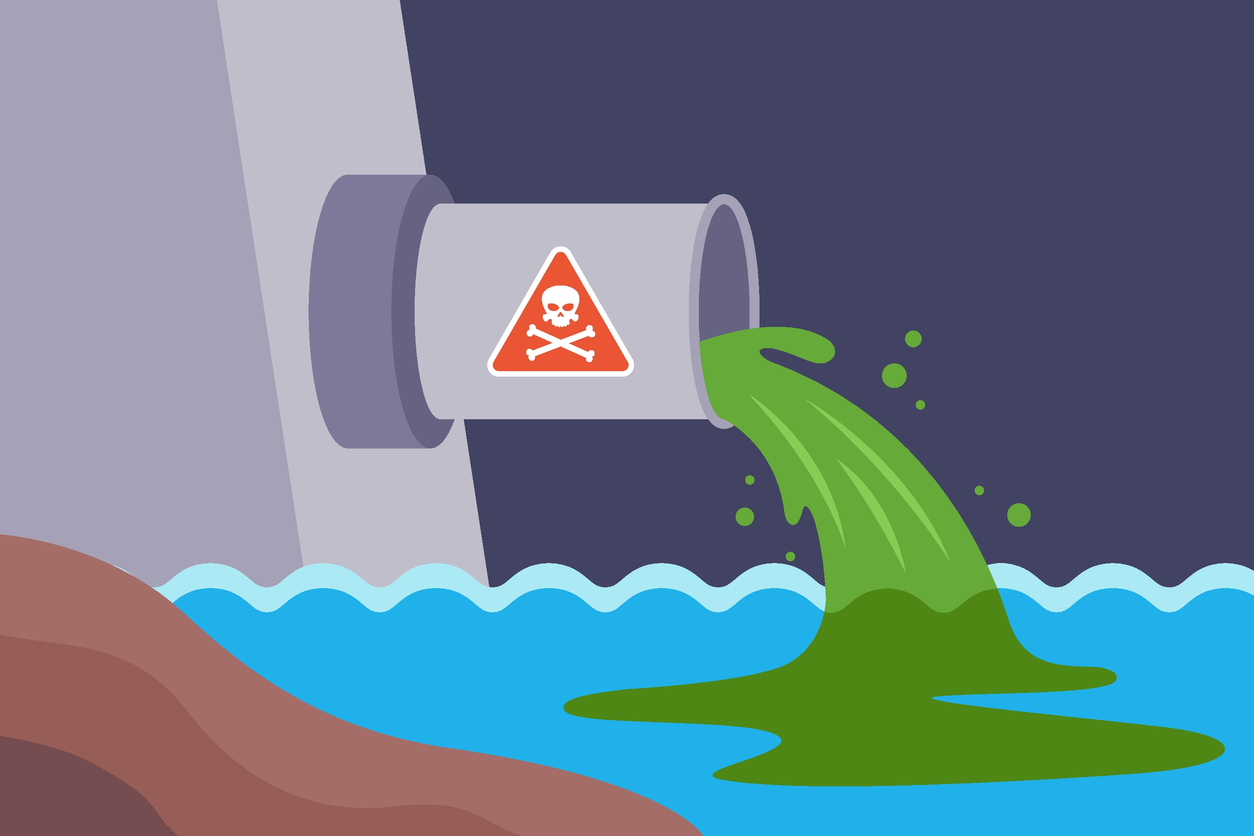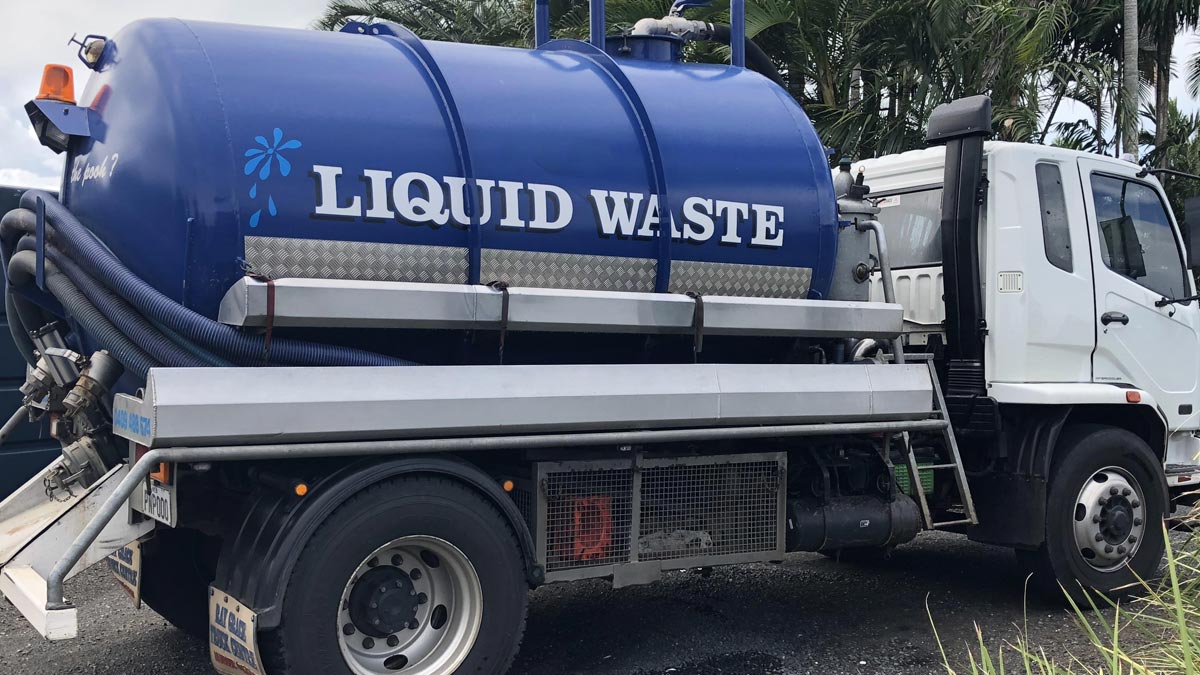Comprehending the Comprehensive Refine of Fluid Waste Disposal: Ideal Practices and Environmental Effect Considerations
The monitoring of liquid waste disposal is a multifaceted problem that calls for a complete understanding of numerous finest techniques and their linked ecological effects. From the kinds of fluid waste produced to the methods employed for collection, therapy, and last disposal, each action plays a vital role in safeguarding environments and public health and wellness. As regulative criteria advance and modern technology developments, the conversation around these processes ends up being increasingly relevant. What implications do these changes hold for future sustainability efforts, and just how can stakeholders guarantee that they are properly addressed?
Types of Fluid Waste
Comprehending the numerous sorts of fluid waste is crucial for efficient monitoring and disposal practices. Liquid waste can be broadly categorized right into several types, each calling for one-of-a-kind handling and treatment approaches.
Industrial fluid waste commonly contains dangerous materials, including heavy steels, solvents, and chemicals, generated during manufacturing processes. These wastes demand strict regulatory conformity to shield human health and the environment. Residential fluid waste mainly describes wastewater produced from houses, including sewage and greywater, which, although less harmful, can still posture significant dangers if incorrectly managed.
Agricultural fluid waste, consisting of drainage from ranches, frequently includes fertilizers and pesticides that can result in environmental deterioration otherwise dealt with properly. Medical liquid waste, produced from health care facilities, includes contaminated fluids such as bodily fluids and chemicals, requiring specialized disposal approaches to stop infection and environmental contamination.
Lastly, oil and grease waste, commonly generated by dining establishments and auto sectors, can create severe blockages in sewage system systems otherwise handled correctly. Comprehending these categories facilitates targeted techniques for treatment, compliance with guidelines, and efficient disposal methods, eventually promoting ecological sustainability and public wellness safety and security.

Collection Approaches
Efficient collection methods are critical for the proper monitoring of liquid waste, ensuring that it is collected safely and efficiently prior to treatment or disposal. Numerous techniques are employed depending upon the kind of fluid waste created, the volume, and the certain qualities of the waste.
One usual technique is the use of specialized collection storage tanks or sumps, which are made to catch liquid waste at the resource. These systems usually integrate pumps that assist in the transfer of waste to bigger storage containers or therapy facilities. In addition, mobile collection systems equipped with vacuum modern technology are employed in situations where waste is produced intermittently or in hard-to-reach areas.
For commercial setups, closed-loop systems can properly reduce leakages and spills, permitting the healing and reuse of fluid waste. It is also necessary to train workers on proper collection procedures to alleviate threats related to harmful substances.
Additionally, carrying out normal upkeep routines for collection tools makes sure optimal performance and security. The combination of innovative tracking systems can boost collection performance by providing real-time data on waste levels and prospective dangers. On the whole, reliable collection methods are foundational to sustainable liquid waste administration methods.
Treatment Procedures
Therapy procedures play an essential duty in the monitoring of fluid waste, changing possibly harmful materials into reusable sources or secure effluents - liquid waste disposal. These procedures can be generally classified right into physical, chemical, and organic techniques, each tailored to deal with specific impurities existing in the waste stream
Physical therapy approaches, such as sedimentation and filtering, job by getting rid of put on hold solids and particulate issue. These strategies are commonly the initial step in the treatment chain, successfully decreasing the lots on succeeding procedures. Chemical therapies involve making use of reagents to reduce the effects of dangerous compounds, precipitate heavy metals, or oxidize natural pollutants, thereby enhancing the safety and security of the effluent.
Organic treatment procedures, including activated sludge systems and anaerobic food digestion, profit from the all-natural capabilities of microbes to degrade raw material. These techniques are especially efficient for wastewater containing naturally degradable pollutants. Advanced treatment innovations, such as membrane filtering and progressed oxidation procedures, are progressively utilized to attain higher levels of filtration.
Integrating a combination of these treatment approaches not just guarantees conformity with governing requirements yet also promotes ecological sustainability by recouping important resources from fluid waste.
Disposal Options
How can companies make certain the safe and responsible disposal of liquid waste? Effective disposal choices are vital for guarding public wellness and the setting. The primary methods include land incineration, therapy, and disposal followed by discharge into community wastewater systems.
Land disposal involves the careful control of fluid waste in assigned garbage dumps, making certain that it does not seep into surrounding dirt or water. Incineration, on the various other hand, topics fluid waste to heats, transforming it right into ash and gases, which need proper purification to reduce exhausts. This technique is suitable for harmful wastes that can not be dealt with with standard ways.
In situations where liquid waste can be treated, companies might select chemical or organic treatment processes to neutralize dangerous elements before releasing the dealt with effluent right into municipal systems. This route usually aligns with regulatory requirements, ensuring that the effluent fulfills security requirements.
Eventually, organizations must perform complete evaluations of each disposal option to establish its feasibility, thinking about factors such as waste make-up, regulatory compliance, and possible threats to wellness and the atmosphere. By picking proper disposal methods, businesses can add to an accountable waste management method.
Environmental Influence
The environmental influence of liquid garbage disposal is an essential factor to consider for companies seeking to decrease their ecological footprint. Incorrect disposal approaches can result in substantial contamination of water sources, soil degradation, and negative results on regional environments. For instance, dangerous fluids can seep into groundwater, posturing risks to alcohol consumption water products and aquatic life. Furthermore, the discharge of neglected or improperly dealt with waste right into surface waters can lead to eutrophication, leading to oxygen exhaustion and the succeeding fatality of fish and various other microorganisms.

To alleviate these influences, companies need important source to embrace finest practices such as carrying out extensive waste treatment processes, advertising recycling and reuse, and adhering to regulatory requirements. By taking a positive method to liquid waste administration, entities can considerably lower their ecological footprint while sustaining sustainable growth objectives. Ultimately, a comprehensive understanding of the environmental influences related to fluid waste disposal is important for informed decision-making and responsible stewardship of all-natural resources.
Verdict
Effective a fantastic read administration of fluid waste is crucial for securing environmental stability and public wellness. Ultimately, an extensive understanding of liquid waste disposal not just minimizes ecological impacts however additionally fosters a dedication to accountable source management and environmental stewardship.
The monitoring of liquid waste disposal is a diverse issue that needs an extensive understanding of various best practices and their associated environmental impacts. From the types of liquid waste generated to the approaches employed for collection, treatment, and final disposal, each action plays a vital duty in safeguarding communities and public health and wellness.The environmental influence of liquid waste disposal is an important factor to consider for companies looking for to decrease their ecological footprint. Eventually, a detailed understanding of the ecological influences associated with fluid waste disposal is important for notified decision-making and accountable stewardship of natural resources.
Inevitably, a detailed understanding of Web Site fluid waste disposal not just minimizes ecological effects however also fosters a dedication to liable source management and environmental stewardship.
Comments on “Industrial Wastewater Treatment: Customized Solutions for Complicated Wastewater Difficulties”